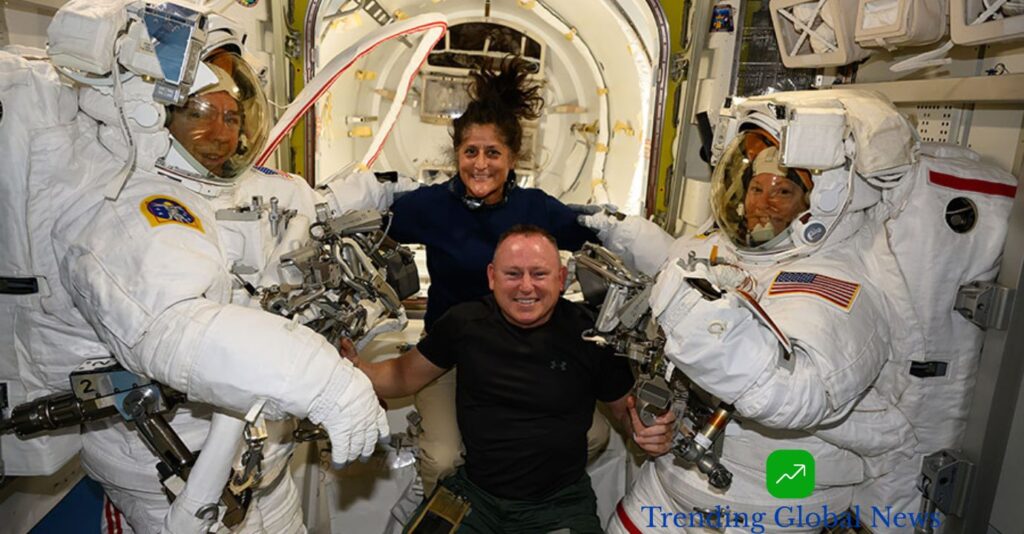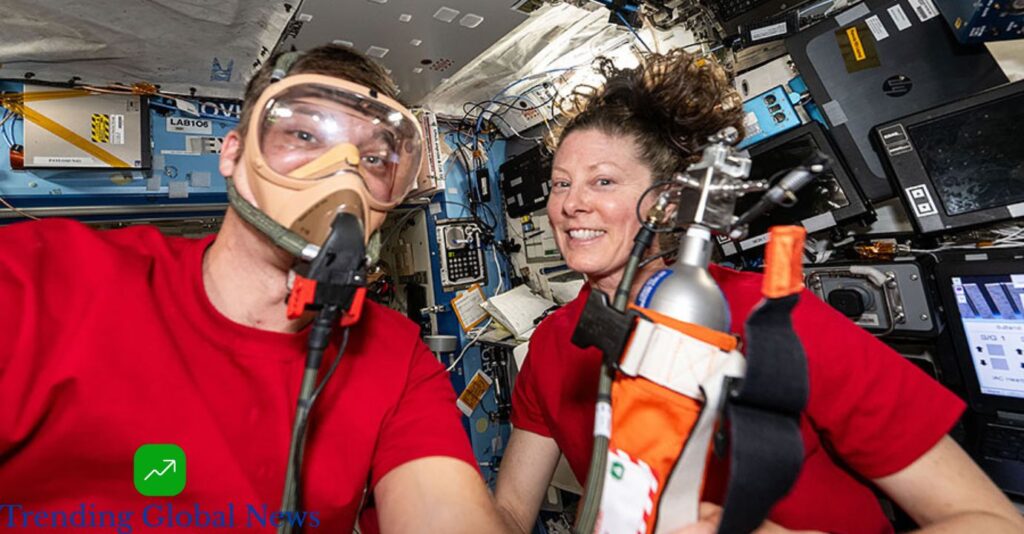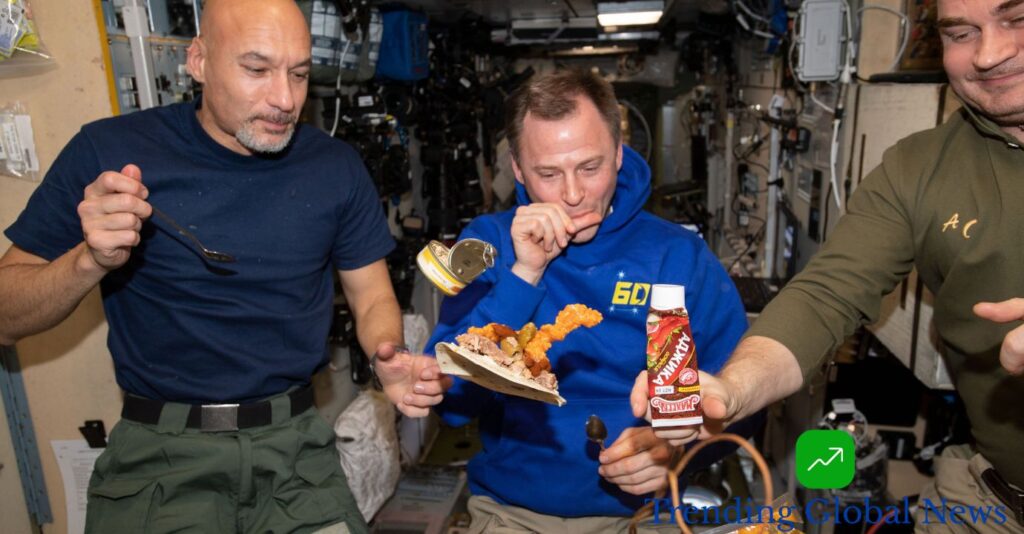“Space” is the ultimate frontier! Astronauts have been traveling beyond our planet for decades, floating in a world devoid of gravity that resembles something from science fiction. However, given the lack of oxygen, the high temperatures, and the constant hazards, how precisely do they exist in space? Discover what it takes to live in space as we dive into the fascinating world of astronaut living.

- Breathing in Space: How Do Astronauts Get Oxygen?
- Eating and Drinking in Space: What's on the Menu?
- Staying Fit: Exercise is Key to Surviving in Space
- Temperature Control: Staying Warm (and Cool) in Space
- Sleeping in Space: How Do You Snooze Without Gravity?
- Staying Healthy: Hygiene and Health Care in Space
- Handling Mental Health: Isolation in Space
- In conclusion, The Ultimate Space Survival
Breathing in Space: How Do Astronauts Get Oxygen?
The lack of oxygen in space is one of the main problems. How do astronauts breathe in space, then?
While we take oxygen for granted here on Earth, astronauts in space are dependent on sophisticated life support systems. By splitting water molecules into oxygen and hydrogen through a process known as electrolysis, these systems produce oxygen. After that, the hydrogen is released into space safely and the oxygen is fed into the spacecraft.

Astronauts not only produce oxygen but also have backup tanks on hand for unexpected situations. Additionally, their spacesuits have transportable life support systems that supply oxygen to them while they are operating outside the spacecraft (during spacewalks).
Eating and Drinking in Space: What’s on the Menu?
You may be curious in the flavor of food in space. Even though they can’t prepare meals in a conventional kitchen, astronauts can nevertheless eat a wide range of delicacies!
Space food is produced specifically to make it wholesome, safe, and convenient to keep. The majority is provided to astronauts as freeze-dried meals that they rehydrate with water. Consider it an advanced form of quick noodles. Additionally, they are packaged specifically to keep food from drifting away in space due to the lack of gravity.

It’s a little more difficult to drink in space. Astronauts drink water and other drinks through specially made straws and pouches because liquids don’t spill in zero gravity. Because space may be extremely dry, astronauts are constantly supplied with water during resupply flights. Hydration is vital.
Staying Fit: Exercise is Key to Surviving in Space
In zero gravity, astronauts’ bones and muscles don’t have to exert as much force as they would on Earth. While it may seem like a dream come true, there is a significant issue for long-term space travel. Health issues might arise when bones lose density and muscles weaken.
Astronauts exercise for at least two hours every day to combat this. They make use of specialized equipment designed for zero gravity, such as resistance machines, stationary bikes, and treadmills. These exercises maintain their bones and muscles fit, enabling them to carry out strenuous activities in space and upon their return to Earth.
Temperature Control: Staying Warm (and Cool) in Space
Extreme temperatures and a hostile environment characterize space. Temperatures can vary greatly from bitterly cold to scorching hot, depending on whether you’re under the direct sunlight or the shadow of a planet.
Astronauts depend on their spacecraft and spacesuits to control their body temperature in order to survive. The temperature within the International Space Station (ISS) is meticulously regulated to maintain a comfortable level. Even more sophisticated are spacesuits, which shield occupants from the hostile environment of space with layers of insulation, heaters, and cooling systems.
Sleeping in Space: How Do You Snooze Without Gravity?
Another difficulty is sleeping in an open space. Astronauts float because there is no gravity to drag them down! They sleep in specially designed sleeping bags that are fastened to the ISS walls so they can’t fall asleep and run into walls or equipment.
Remarkably, because the International Space Station (ISS) circles the Earth every ninety minutes, astronauts witness numerous sunrises and sunsets each day. Their biological clocks may become confused as a result, therefore they need on set sleep times to keep their rhythm consistent.
Staying Healthy: Hygiene and Health Care in Space
Being hygienic is essential in space, but since there are no running water or showers, astronauts must find alternative ways to stay clean. To stay clean, they utilize no-rinse shampoos and rinseless body wipes. However, dental hygiene is simpler; cleaning teeth is essentially the same, but toothpaste needs to be swallowed or spit into a towel.
In space, healthcare is also a top concern. The International Space Station (ISS) has a medical kit that can treat common illnesses, and astronauts receive thorough training on how to manage medical crises. Astronauts can use sophisticated communication technologies to contact Earth-based physicians in the event of major problems.
Handling Mental Health: Isolation in Space
Living in space presents mental as well as physical challenges. Astronauts are isolated from friends and family for several months. They use emails and video conversations to keep in regular contact with loved ones as a coping mechanism. To keep things normal, the group also hangs together and watches movies, plays games, and even celebrates holidays.
Prior to their flights, astronauts receive psychological training, and while in space, they have access to therapy services. It is essential to have an optimistic outlook in order to endure the boredom and seclusion of space travel.
In conclusion, The Ultimate Space Survival
Modern technology, physical stamina, and mental toughness are all necessary for space survival. Astronauts depend on well planned systems and procedures to stay safe and healthy during everything from producing oxygen to working out in zero gravity.
The next time you gaze up at the night sky, keep in mind the amazing people that are suspended above and laboring valiantly in this harsh atmosphere. Their ability to survive in space is not only proof of human resourcefulness, but it also offers us a peek of what lies ahead for exploration in the future!
